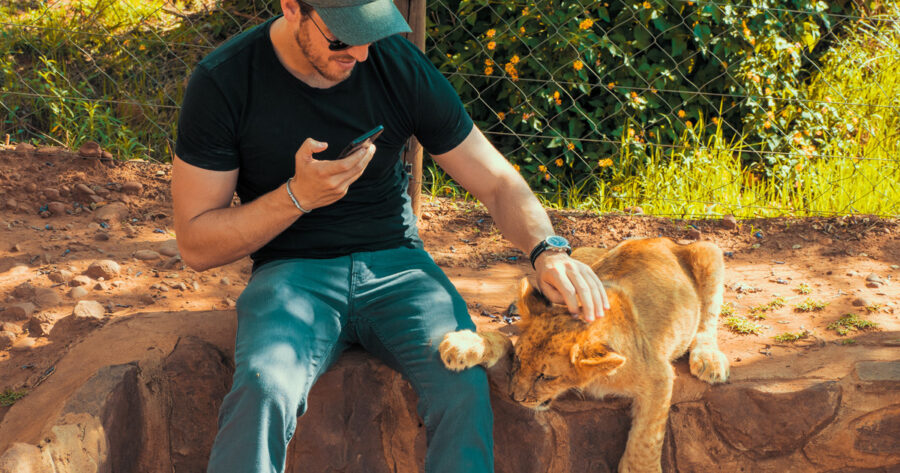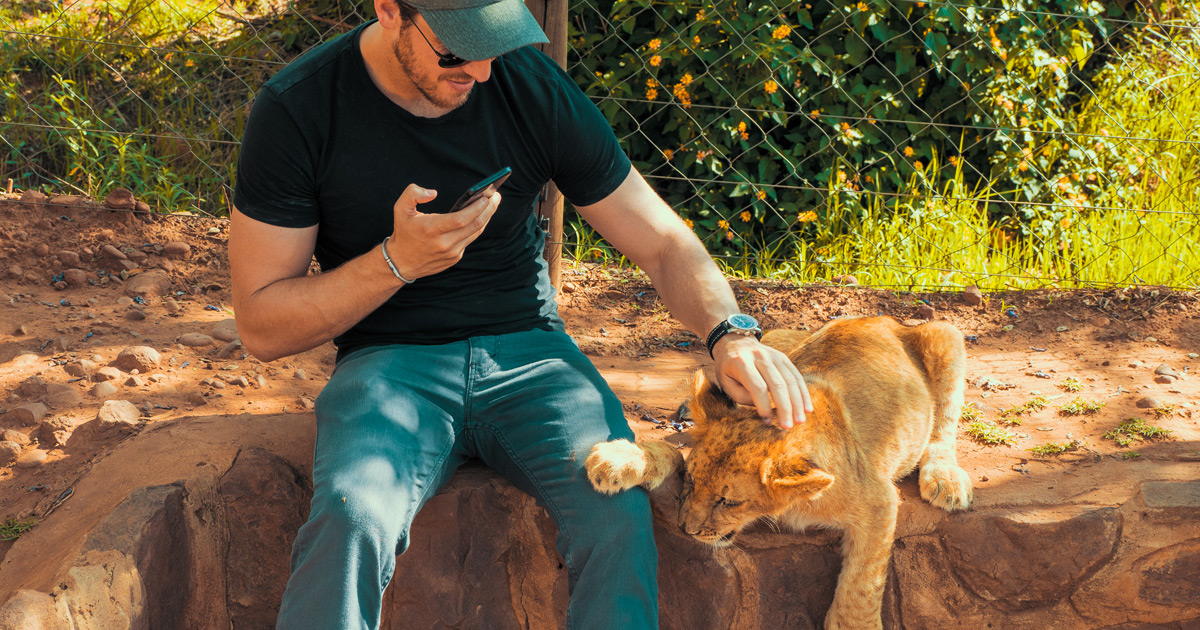
Captive Lion Breeding Poses Health Risks to Tourists and Others, Says Study
A joint scientific study by Blood Lions and World Animal Protection highlights how the captive lion breeding industry in South Africa poses real and serious health risks to thousands of tourists, industry workers and its communities. “Five major diseases (dubbed The Sick 5 in our new campaign) have been identified that can inflict serious health […]

A joint scientific study by Blood Lions and World Animal Protection highlights how the captive lion breeding industry in South Africa poses real and serious health risks to thousands of tourists, industry workers and its communities.
“Five major diseases (dubbed The Sick 5 in our new campaign) have been identified that can inflict serious health issues for people”, says Dr Louise de Waal (Director of Blood Lions). “These diseases are associated with at least 63 potentially harmful pathogens linked with both wild and captive lions, as identified in our peer-reviewed paper.”
Underestimating the impact of such pathogens and the associated zoonotic diseases could lead to future epidemics with reductions in life expectancy, increased child and maternal death and serious socio-economic consequences.
What are the Sick 5?
The Sick 5 are Human Ehrlichiosis, Human Babesiosis, African Sleeping Sickness, Toxocariasis and Trichinosis.
The first two are tick-borne diseases, where the bacteria and parasite respectively are transmitted from animals to people by ticks. Toxocariasis and Trichinosis parasites are transmitted more directly to humans, the former for example by handling faeces contaminated soil and the latter has a direct animal-human transmission.
African Sleeping Sickness (or Trypanosomiasis) is caused by a parasite transmitted by the tsetse fly and is listed as a Neglected Tropical Disease by the World Health Organisation (WHO). Over the last century, this disease has caused several epidemics in Africa.

Wildlife farms can be hot bed for diseases
In South Africa, more than 8,000 lions are bred and kept on commercial farms for tourism activities, captive hunting, the bone trade and live exports. These wildlife farms can be a hot bed for diseases, especially when poor hygiene, poor diet, and other stresses associated with captivity weaken the animal’s immune system. Such welfare issues were highlighted as commonly occurring on South Africa’s commercial lion farms in a recent NSPCA report.
Furthermore, contagious diseases can spread rapidly when large numbers, and sometimes even different species, of wild animals are kept in the same enclosures, as this increases the risk of transmission.
Lack of studies on lion farm health and diseases
Despite the large number of lions bred in captivity in South Africa and the long list of diseases found to affect them, the researchers did not find any scientific studies investigating health and diseases on commercial lion farms here in South Africa. Without this vital information it is impossible to effectively prevent, monitor or manage potential health risks on these farms, particularly considering this industry is poorly regulated and animal welfare enforcement lies with the NSPCA only.
“Our research identified substantial gaps in our knowledge base concerning the captive lion breeding industry in South Africa, which can have huge health implications for tourists interacting with lions, farm staff caring for the animals, taxidermists preparing the trophies, and slaughterhouse workers killing lions and preparing their skeletons”, says de Waal.
To avoid potential health risks and future pandemics, the Blood Lions “The Sick 5” campaign focusses on three major calls to action for members of the public and other entities:
- Asking the public to stop interacting with captive wildlife – an industry that has been condemned by global conservation authorities and leaders in the tourism sector.
- Urging the South African Minister of Environment, Forestry and Fisheries (DEFF) to set a zero CITES lion bone export quota.
- Calling for the World Health Organisation (WHO) to curb the global wildlife trade.
Read more from a peer-reviewed paper on zoonosis: https://www.mdpi.com/2076-2615/10/9/1692/htm
